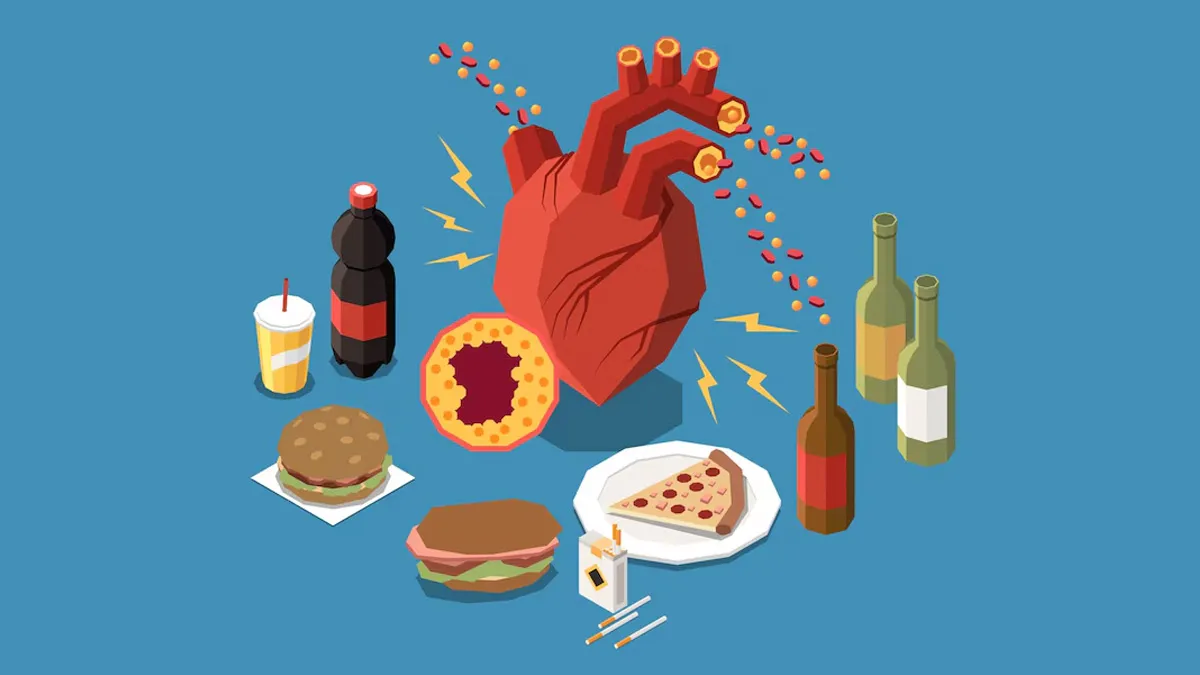
The intricate relationship between gut health and cardiovascular health has been a topic of discussion for a long time among researchers and doctors. However, it is strongly believed that there is a significant influence of the gut bacteria on cholesterol levels. But how exactly do these microorganisms impact our cardiovascular risk factors? Let us learn from our expert, Tanisha Bawa, Award-winning Certified Nutrition Coach and Founder of TAN|365.
Bawa said, “Trillions of microorganisms, including bacteria, viruses, parasites, and fungi, live in the stomach. A secret organ of the human system, the microbiota determines whether a person is healthy or ill. These interactions, which are mostly symbiotic in a healthy condition, affect a host's immunity, energy, metabolism, and nutrition.”

“Numerous studies indicate that the gut microbiota can change the composition of blood lipids, especially cholesterol, by influencing bile acid metabolism and the production of microbial products. Although the specifics of these interactions on human health have only recently begun to be studied, the metabolism of cholesterol by gut microbes has been known for decades. Since cholesterol is a crucial signalling molecule that controls many physiological processes, including hormone regulation and the synthesis of BA, a disruption in its formation has numerous negative health effects,” she added.
Tanisha also mentioned, “Atherosclerosis, a chronic lipid-driven inflammatory disease of the arteries that increases the risk of myocardial infarctions and strokes, is largely caused by high blood cholesterol, sometimes referred to as hypercholesterolaemia. It's becoming more and more obvious that gut bacteria affect many different bodily systems. And keeping blood cholesterol levels stable is part of this. Gut bacteria appear likely to affect these levels by converting bile acids into secondary bile acids, generating coprostanol, and trapping cholesterol.”
Learn about the additions and subtractions you can make in your dietary regime to keep your heart healthy and young.
Don't Miss: 3 Reasons To Avoid Tea/Coffee During Pregnancy, As Per Gynecologist
Tanisha said, “Pure A2 Gir animal ghee, mustard oil, and coconut oil all help reduce inflammation and increase good cholesterol.”

“Omega 3 fatty acids are vital and very beneficial for the heart. It improves artery walls, reduces LDL, increases HDL, and reduces inflammation. For instance, walnuts, chia seeds, flax seeds, and fatty fish, to mention a few,” said Tanisha.
“Due to its strong antioxidant content and vasodilator properties,” shared the expert.
“For its ability to reduce inflammation and bad cholesterol,” she said.
“For its high antioxidant content, especially EGCG. Also, research now finds that it holds potent cholesterol-lowering properties and can prevent plaque build- up in the arteries,” shared Bawa.
Tanisha said, “Grapes, pomegranates, and berries, for their high antioxidant content.”
“For their ability to curb inflammation, fight free radicals, cell repair, and heal arteries. It’s a must-have for people who are exposed to cigarette and industrial pollution. E.g.: sunflower, seeds, unsalted peanuts, avocados, almonds, and sesame,” said Bawa.
Bawa continued, “For their ability to boost cardiac muscle health and blood pressure. For example, all nuts and seeds, green leafy vegetables, and cacao.
Don't Miss: Phlegm And Mucus Bringing Your Health Down? 5 Home Remedies To Get Rid Of It
If you liked this story, then please share it. To read more such stories, stay connected to HerZindagi.
Also watch this video
Herzindagi video
Our aim is to provide accurate, safe and expert verified information through our articles and social media handles. The remedies, advice and tips mentioned here are for general information only. Please consult your expert before trying any kind of health, beauty, life hacks or astrology related tips. For any feedback or complaint, contact us at compliant_gro@jagrannewmedia.com.